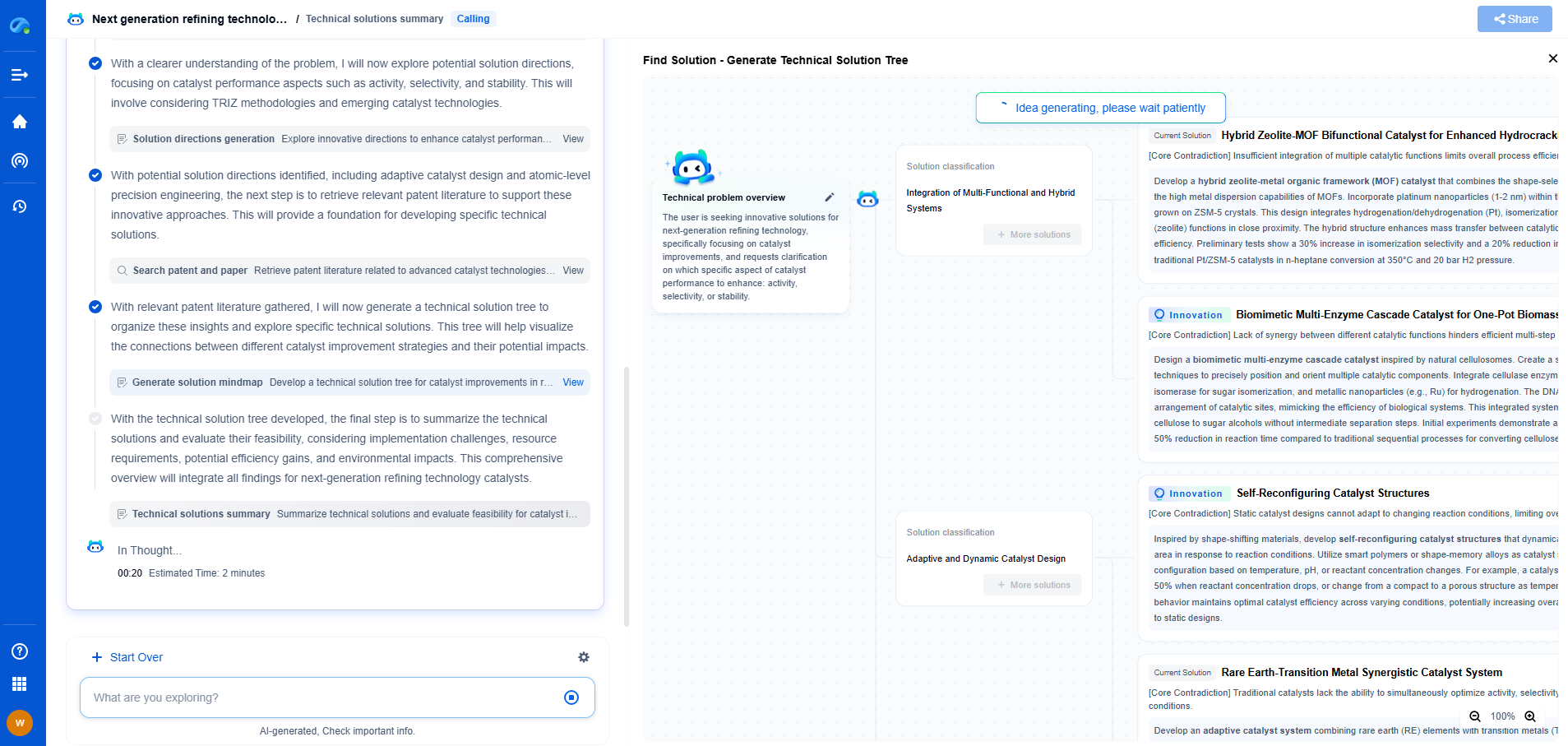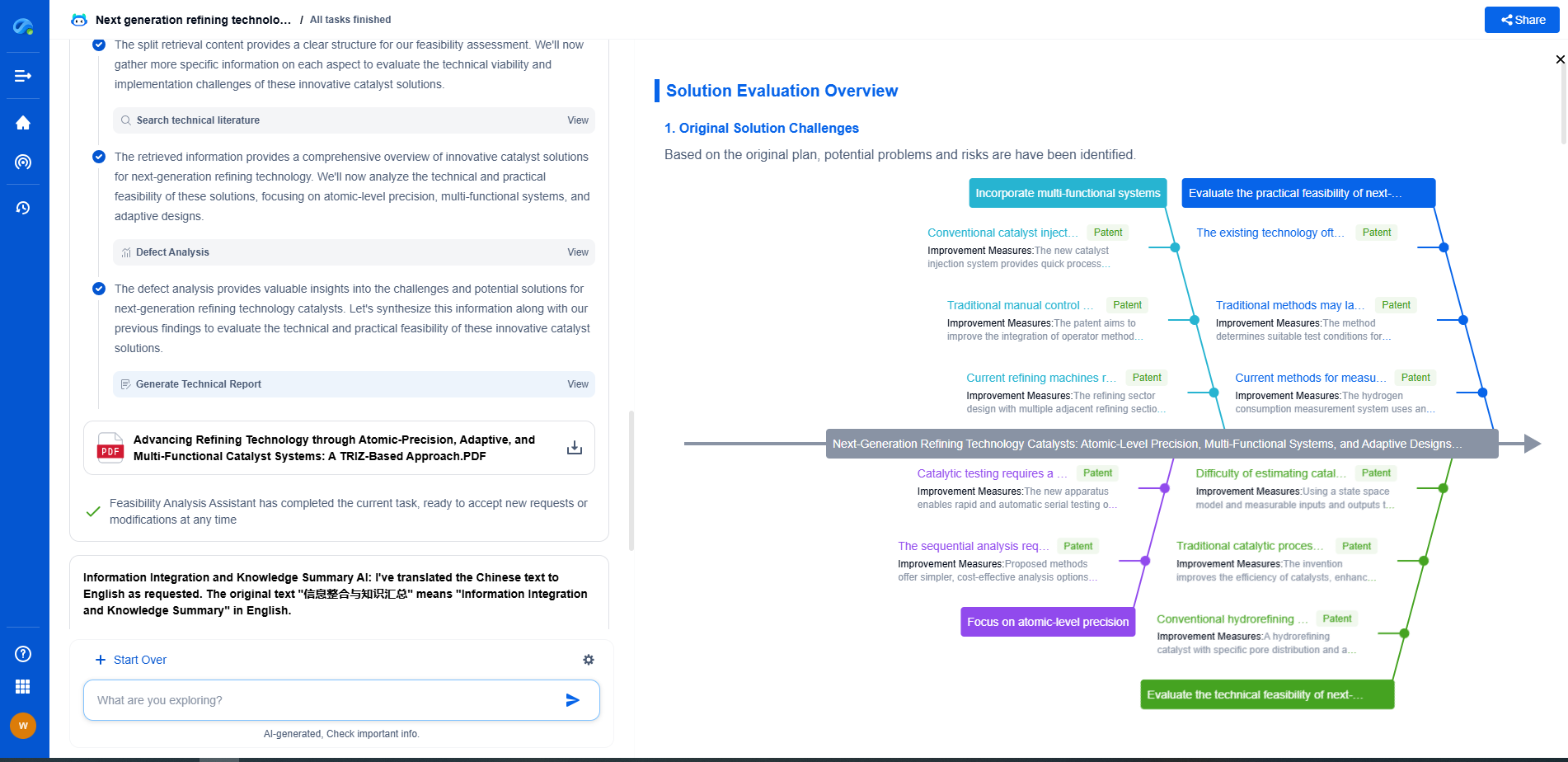PLC vs MCU: Which One Should You Use for Your Industrial Project?
JUL 2, 2025 |
When embarking on an industrial project, choosing the right control system is crucial for the success and efficiency of your operations. Two of the most commonly considered options are Programmable Logic Controllers (PLCs) and Microcontroller Units (MCUs). Both have their unique advantages, and the choice between them depends on the specific requirements of your project. Understanding the fundamental differences and applications of each can help in making an informed decision.
PLCs: Designed for Industrial Applications
PLCs are specialized computing devices designed specifically for industrial environments. They were originally developed to replace complex relay-based control systems in factories. One of the primary advantages of PLCs is their robustness and reliability in harsh industrial conditions. They are built to withstand extreme temperatures, dust, and vibrations, making them ideal for factory and plant operations.
PLCs excel in applications requiring complex control logic and real-time responses. They come equipped with a wide range of input/output (I/O) modules and communication protocols, allowing for extensive connectivity and integration with other industrial equipment. This makes them particularly suitable for large, automated systems such as assembly lines, robotics, and process control.
Additionally, PLCs are programmed using ladder logic, a language resembling electrical relay logic diagrams. This programming style is intuitive for engineers and technicians familiar with industrial controls, reducing the learning curve and facilitating easier troubleshooting.
MCUs: Flexible and Cost-Effective
In contrast, MCUs are versatile computing devices often used in a variety of applications, ranging from consumer electronics to automotive systems. They are typically smaller and more cost-effective than PLCs, making them a popular choice for projects with budget constraints.
MCUs offer greater flexibility in terms of programming languages, allowing engineers to use C, C++, or even assembly language, depending on the complexity and requirements of the application. This can be advantageous for projects that require custom and intricate functionalities beyond the scope of standard industrial control.
While MCUs are not specifically designed for industrial environments, they can be adapted for certain industrial applications, especially where space-saving and power efficiency are critical. However, additional measures, such as protective housings, may be necessary to ensure durability and reliability in harsh conditions.
Key Considerations for Choosing Between PLCs and MCUs
1. **Environmental Conditions**: If your project involves extreme temperatures, moisture, or dust, a PLC might be more suitable due to its rugged design. On the other hand, MCUs can be used in less demanding environments or where additional protective measures are feasible.
2. **Complexity of Control Logic**: For projects requiring sophisticated control processes and real-time data processing, PLCs are often the better choice. They are designed to handle complex tasks and are equipped with extensive I/O capabilities and communication protocols.
3. **Cost and Budget**: MCUs tend to be more cost-effective, making them attractive for smaller projects or applications where cost is a significant factor. However, the initial savings must be weighed against potential additional costs for environmental adaptations and integration.
4. **Programming and Development**: Consider the expertise of your engineering team. If they are more familiar with industrial control systems and ladder logic, a PLC may be easier to implement. Conversely, if the team is proficient in high-level programming languages, an MCU might offer more flexibility and customization.
5. **Scalability and Future Expansion**: PLCs are designed for scalability, allowing for easy expansion of I/O modules and integration with other control systems. If the project has the potential for future growth or changes, a PLC may offer more straightforward adaptability.
Conclusion
Choosing between a PLC and an MCU for your industrial project depends on a variety of factors, including environmental conditions, complexity of control logic, budget constraints, and the expertise of your engineering team. Each option has its strengths, and the decision should be guided by the specific needs and objectives of your project. By carefully considering these aspects, you can select the most appropriate control system, ensuring efficiency, reliability, and success in your industrial operations.
Ready to Reinvent How You Work on Control Systems?
Designing, analyzing, and optimizing control systems involves complex decision-making, from selecting the right sensor configurations to ensuring robust fault tolerance and interoperability. If you’re spending countless hours digging through documentation, standards, patents, or simulation results — it's time for a smarter way to work.
Patsnap Eureka is your intelligent AI Agent, purpose-built for R&D and IP professionals in high-tech industries. Whether you're developing next-gen motion controllers, debugging signal integrity issues, or navigating complex regulatory and patent landscapes in industrial automation, Eureka helps you cut through technical noise and surface the insights that matter—faster.
👉 Experience Patsnap Eureka today — Power up your Control Systems innovation with AI intelligence built for engineers and IP minds.
- R&D
- Intellectual Property
- Life Sciences
- Materials
- Tech Scout
- Unparalleled Data Quality
- Higher Quality Content
- 60% Fewer Hallucinations
Browse by: Latest US Patents, China's latest patents, Technical Efficacy Thesaurus, Application Domain, Technology Topic, Popular Technical Reports.
© 2025 PatSnap. All rights reserved.Legal|Privacy policy|Modern Slavery Act Transparency Statement|Sitemap|About US| Contact US: help@patsnap.com

